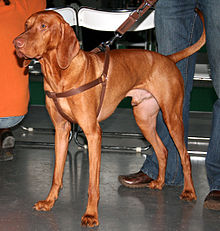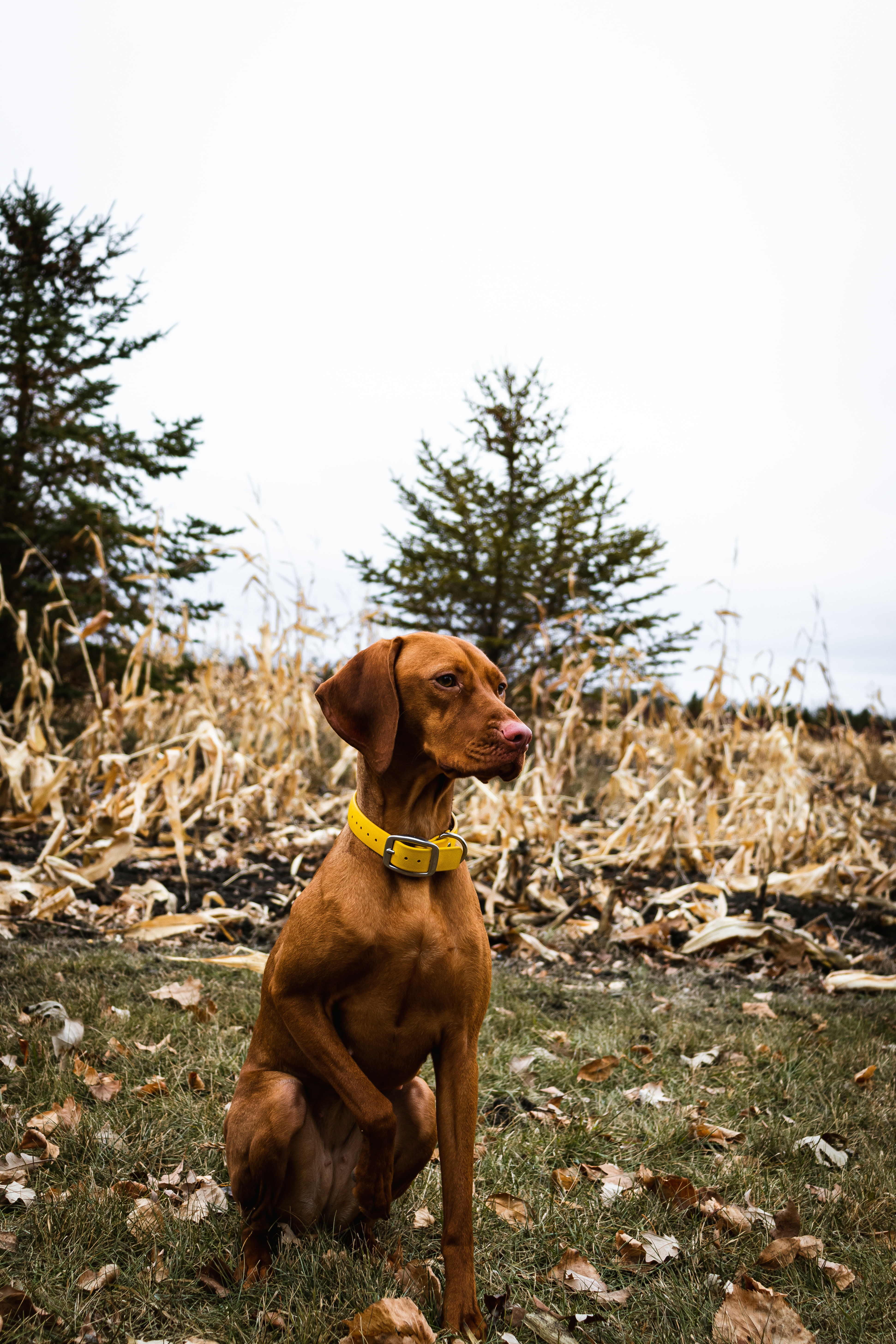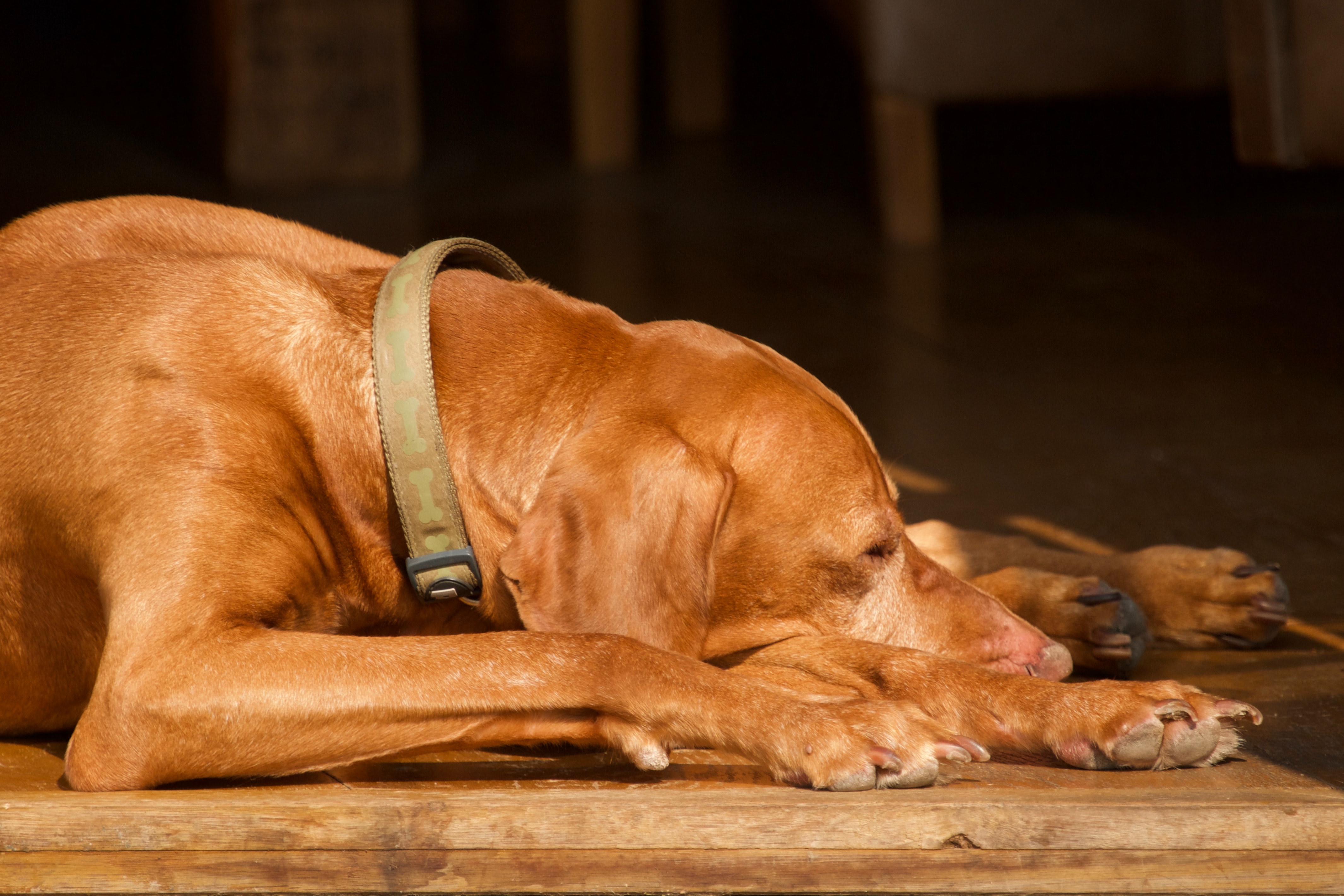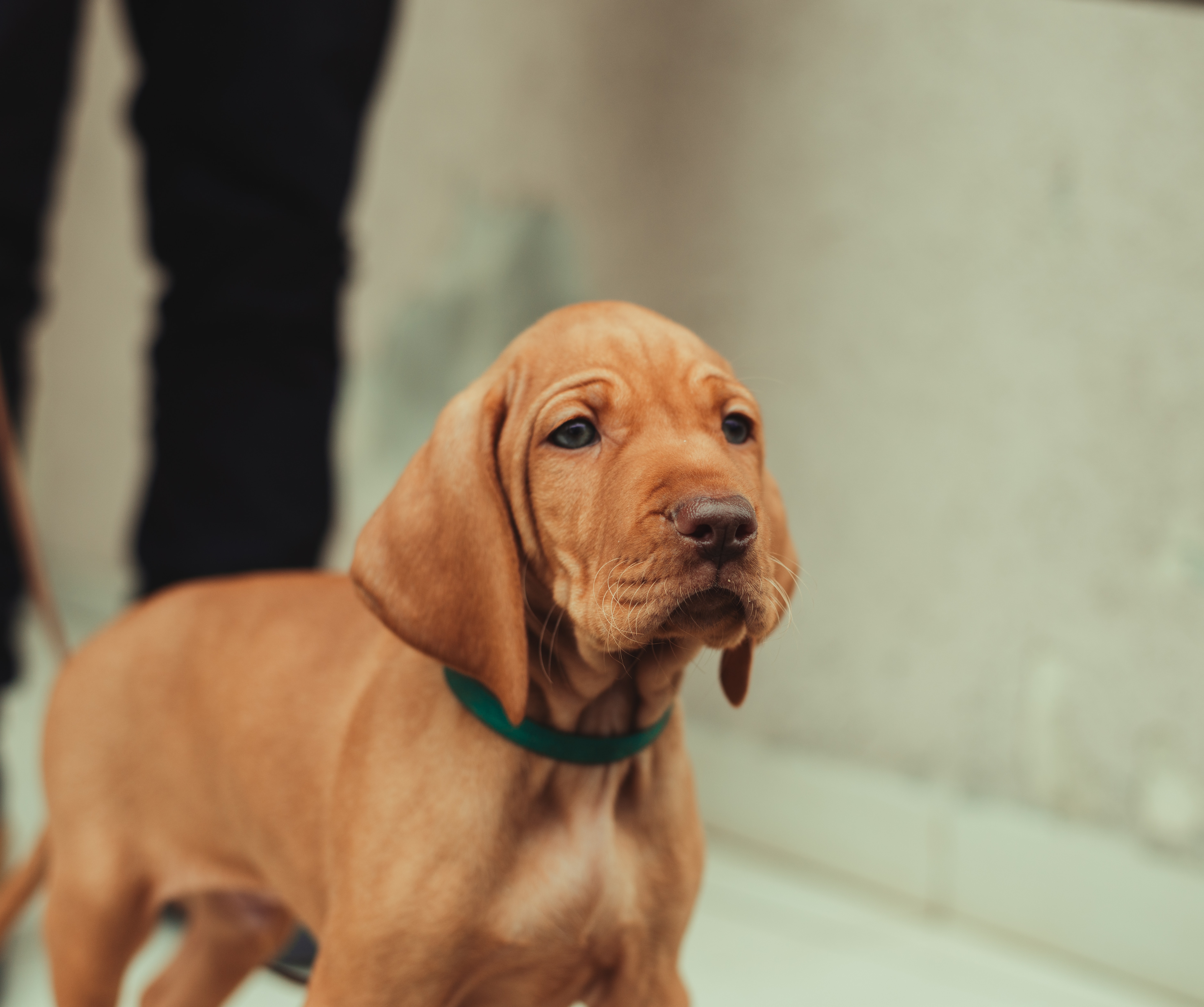
The Vizsla, a breed imbued with elegance and athleticism, has its origins in Hungary, where it was cherished by nobility as a skilled hunting companion. Renowned for its sleek, rust-colored coat and affectionate disposition, this medium-sized dog seamlessly combines the roles of a pointer and retriever, making it a standout in field events. Beyond hunting, the Vizsla is known for its deep bond with humans, often described as “velcro” due to its desire to remain close to its owners. Its keen intelligence and energetic nature make it suitable for active families and outdoor enthusiasts.
The Vizsla is a member of the AKC Sporting Group.
Breed Characteristics
| Dog Breed | Vizsla |
| Breed Popularity (AKC) | 33 |
| Country of Origin | Hungary |
| Personality | Intelligent, energetic, playful, good-natured |
| Life Expectancy | 12-14 yrs |
| Height | 21-24 in |
| Weight | 44-60 lbs |
| Color | Red |
| Coat | Short, smooth |
| Shedding | Seasonal |
| Grooming | Weekly Brushing |
| Health Problems | Dental problems, eye issues, skin allergies |
| Trainability | Eager to Please |
| Exercise Needs | Energetic |
Vizsla History
The Vizsla, also known as the Hungarian Pointer, originates from Hungary and has ancient roots, with evidence of its ancestors depicted in art from the 10th century. This breed was developed by the Magyar tribes for hunting, prized for its excellent nose and high-energy work ethic. Over centuries, it’s likely they were crossed with other pointer breeds to achieve their current form.
Temperament
Vizslas are affectionate and energetic dogs. Known as ‘Velcro dogs’, they form deep attachments to their families, often wanting to be close at all times. Their behavior is friendly, and they are particularly good with children. Trainability is high due to their intelligence and desire to please. Their energy level requires regular exercise, and early socialization ensures they are well-rounded pets. Barking tendencies can be moderate, especially if they sense something amiss. Their affectionate nature and sensitivity mean they prefer not to be left alone for extended periods.
Remember, while breed traits provide a general idea, individual dogs can have personalities that differ from the breed standard. Always spend time getting to know the dog and ensure their needs and temperament align with your lifestyle.
Grooming Requirements
Vizslas have a short, smooth coat that’s easy to groom. Regular brushing will remove loose fur and distribute skin oils. They require occasional bathing using a quality dog shampoo. Don’t forget the routine grooming practices, like nail trimming and ear checks, to keep this breed in top shape.
Vizsla Health
Vizslas, with a lifespan of 10-15 years, are known for their affectionate nature. They can be prone to hip dysplasia and certain hereditary eye conditions. Regular health check-ups, vaccinations, and a balanced diet catering to their active nature are crucial.
Exercise Needs
Vizslas are active and affectionate dogs. They thrive on regular exercise, whether through long walks, hikes, or play sessions. Fetch and agility training can be engaging for them. Regular visits to the dog park can provide them with the socialization and activity they crave. Their affectionate nature also means they’ll enjoy bonding activities with their owners.
Training
Vizslas, affectionate and energetic, thrive with structured obedience training. With clear commands, potty training is smooth, while crate training offers downtime after their spirited activities. It’s pivotal to address behavior problems early, given their sensitive nature. Socialization, especially during their formative months, ensures they’re adaptable and sociable with both humans and other animals.
Vizsla Pictures



Related Dog Breeds
More Dog Resources
Are you thinking about getting a puppy? Make sure to check out our list of important questions to ask before you adopt a puppy.
We also have many resources to help, from naming your puppy to socialization resources and training tips.
Take me back to the Ultimate Guide to Dog Breeds



